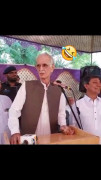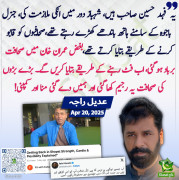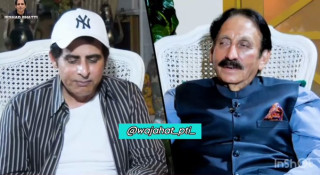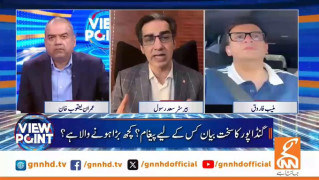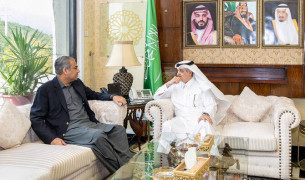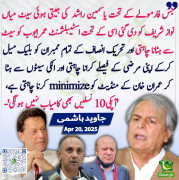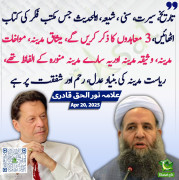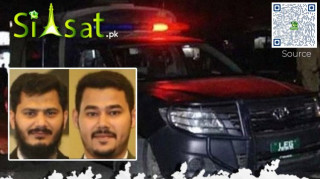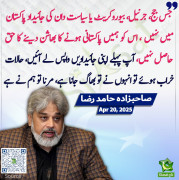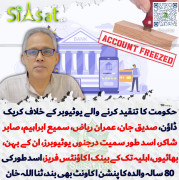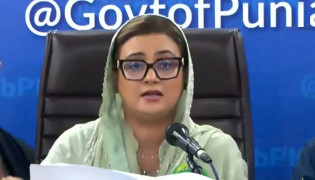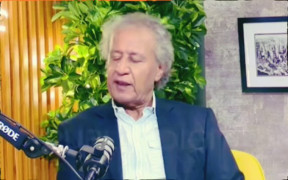Masud Rajaa
Siasat member
The Shifting Political Landscape of Pakistan: A Looming Crisis
Introduction
Pakistan’s political and social structures are undergoing profound changes, signaling a ‘coming crisis’ of governability. These shifts are more significant than the ongoing rift between Imran Khan and Pakistan’s military, indicating deeper, systemic transformations.
Political and Social Upheaval
The political landscape is in flux, with traditional patterns being upended and the military’s authority increasingly challenged. Historically seen as the country’s guardian, the military now faces a historic loss of legitimacy that is not easily reversible.
Changing Public Perceptions
A normative shift in public perceptions has occurred, with the military no longer viewed as a benevolent guardian but as an actor with entrenched economic and political interests. Citizens are increasingly skeptical of the military’s ability to govern effectively.
Origins of the Structural Shift
This shift originated in the 2000s, marked by an expanded middle class and increased military privileges, particularly in the real estate sector. Pakistan’s middle class has grown substantially, reflected in urbanization, higher education, and rising remittances. This growth extends to rural areas as well.
The Aspirational Middle Class
Pakistan has witnessed the emergence of an ‘aspirational’ middle class—populations with middle-class ideals and aspirations, even if their incomes do not match. This shift is amplified by the youth and technology, with a significant generation of young people defecting from traditional political parties and gaining a voice through social media.
Social Media and Public Discourse
Social media has become a platform for public discourse, allowing citizens to debate military interference, scrutinize judicial decisions, and examine diplomatic engagements. This has put unprecedented strain on the political structure inherited from British colonial rule and perfected by the military.
Individual vs. Collective Voting
Individual voting is eclipsing collective voting, as political leaders can now appeal directly to voters via social media, weakening traditional patronage structures. This reduces the influence of caste, biraderi, and spiritual affiliations.
Erosion of Military Control
The military’s control over the public narrative and political authority in rural areas is eroding. Resource constraints and declining geopolitical rents have further limited the military’s ability to engineer politics as it did in the past.
Economic Challenges
The economic costs of political interference are growing. Unlike the 1990s, today’s instability carries a significant price tag. The elitist development model, based on privileges for a few, is unraveling, adding to the military’s challenges.
A Difficult Choice for the Military
The military faces a dilemma: increase repression or concede to fundamental reforms. Repression could lead to further loss of legitimacy, while reforms might undercut its power. Pakistan stands at a juncture similar to the Arab Spring, driven by youth, lack of opportunities, and middle-class grievances.
Conclusion
Without institutional reform, political conflict may escalate into violence. Instability in a nuclear power like Pakistan, with a population larger than half of the Arab world, could have far-reaching consequences.
Introduction
Pakistan’s political and social structures are undergoing profound changes, signaling a ‘coming crisis’ of governability. These shifts are more significant than the ongoing rift between Imran Khan and Pakistan’s military, indicating deeper, systemic transformations.
Political and Social Upheaval
The political landscape is in flux, with traditional patterns being upended and the military’s authority increasingly challenged. Historically seen as the country’s guardian, the military now faces a historic loss of legitimacy that is not easily reversible.
Changing Public Perceptions
A normative shift in public perceptions has occurred, with the military no longer viewed as a benevolent guardian but as an actor with entrenched economic and political interests. Citizens are increasingly skeptical of the military’s ability to govern effectively.
Origins of the Structural Shift
This shift originated in the 2000s, marked by an expanded middle class and increased military privileges, particularly in the real estate sector. Pakistan’s middle class has grown substantially, reflected in urbanization, higher education, and rising remittances. This growth extends to rural areas as well.
The Aspirational Middle Class
Pakistan has witnessed the emergence of an ‘aspirational’ middle class—populations with middle-class ideals and aspirations, even if their incomes do not match. This shift is amplified by the youth and technology, with a significant generation of young people defecting from traditional political parties and gaining a voice through social media.
Social Media and Public Discourse
Social media has become a platform for public discourse, allowing citizens to debate military interference, scrutinize judicial decisions, and examine diplomatic engagements. This has put unprecedented strain on the political structure inherited from British colonial rule and perfected by the military.
Individual vs. Collective Voting
Individual voting is eclipsing collective voting, as political leaders can now appeal directly to voters via social media, weakening traditional patronage structures. This reduces the influence of caste, biraderi, and spiritual affiliations.
Erosion of Military Control
The military’s control over the public narrative and political authority in rural areas is eroding. Resource constraints and declining geopolitical rents have further limited the military’s ability to engineer politics as it did in the past.
Economic Challenges
The economic costs of political interference are growing. Unlike the 1990s, today’s instability carries a significant price tag. The elitist development model, based on privileges for a few, is unraveling, adding to the military’s challenges.
A Difficult Choice for the Military
The military faces a dilemma: increase repression or concede to fundamental reforms. Repression could lead to further loss of legitimacy, while reforms might undercut its power. Pakistan stands at a juncture similar to the Arab Spring, driven by youth, lack of opportunities, and middle-class grievances.
Conclusion
Without institutional reform, political conflict may escalate into violence. Instability in a nuclear power like Pakistan, with a population larger than half of the Arab world, could have far-reaching consequences.
- Featured Thumbs
- https://i.ibb.co/JxzMVJK/Screenshot-2024-07-02-at-7-45-51-PM.png

